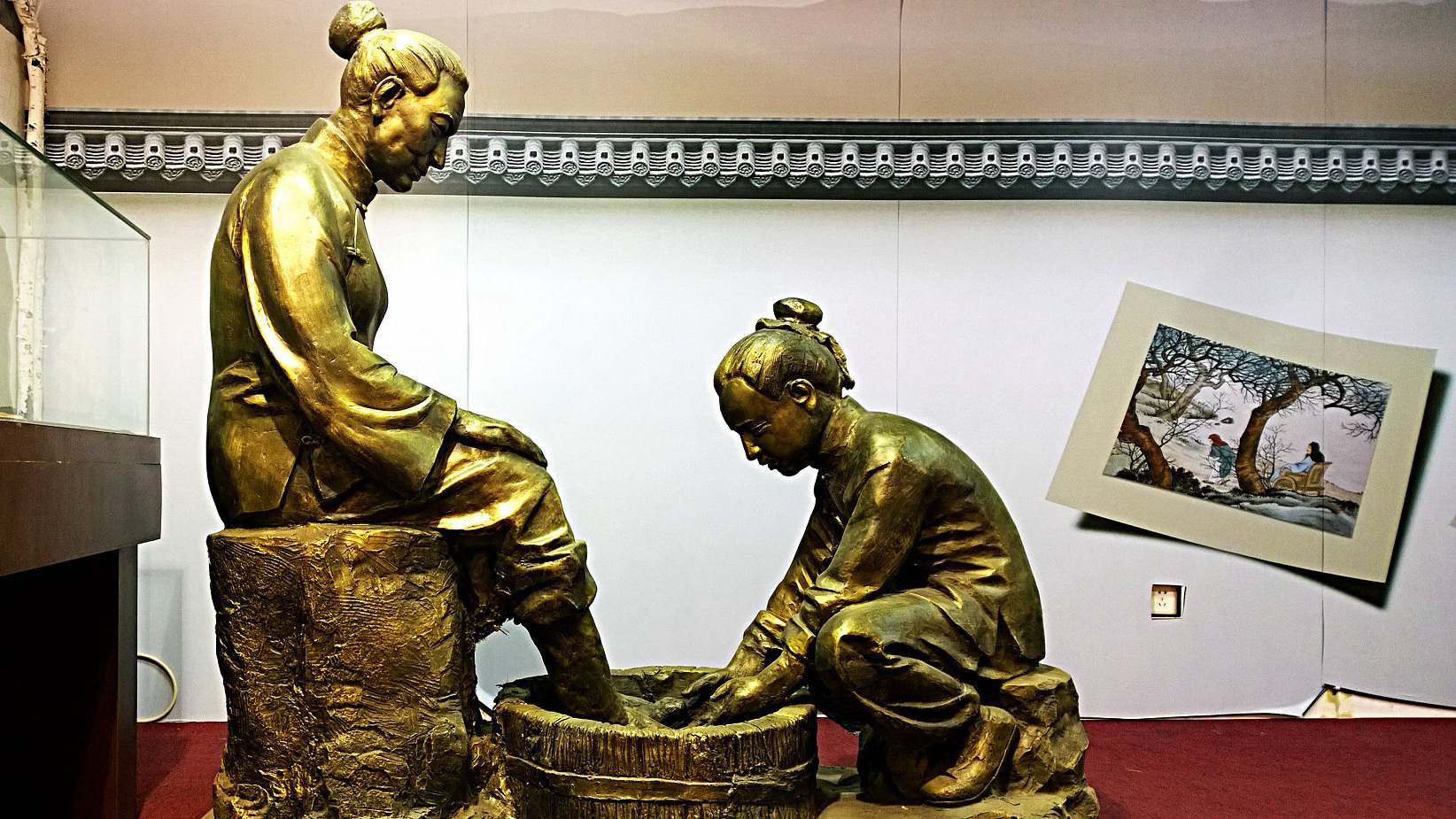
(Photo: CGTN)
The Twenty-Four Paragons of Filial Piety, which was written 800 years ago in China, depicts many stories including some quite unusual ones praising children’s love for their parents, and essentially, the principle of filial piety.
The text, for example, contains a story of a man selling himself to be a slave for money to bury his father properly, while a man in another story uses his body to melt ice to catch a fish to feed his sick mother.
These deeds are widely considered “foolish” in today’s China and Asia in general. But the notion of one respecting and loving one’s parents has persisted for much longer. Filial piety, the duty to take care of one's parents, elders, and ancestors, is a strong pillar in Confucian philosophy.
However, against the backdrop of fast modernization and more flexible social mobility, the idea has clashed with these social changes, and even the concept itself has started to evolve.
“Nowadays, the problem is how to define filial piety. We should discard the blind filial piety that parents have supremacy over their children, and children should obey the parents unconditionally, ” said Wei Nanzhi, a research fellow at the American Institute at the Chinese Academy of Social Sciences in Beijing. Wei added that the concept of filial piety is fluid and should be given new meaning in a new context.
In ancient Chinese society, obeying one’s parents, or elders, in general, is a matter of survival.
Fei Xiaotong, a pioneering sociologist in China, made some profound observations on the value of obeying in his book, “From the Soil.”
Since most families in the village sustain themselves by farming, they do not have to move unless there is a natural disaster, allowing generations to live on the same soil for decades. In this case, age means experience and knowledge in obtaining food.
The cost and burden to look after the old naturally fell on the shoulders of their children. It is a cyclical system that perfectly maintains social stability.
But the global industrial revolution has crushed the system in an almost cruel way, and the speed of urbanization has made social mobility rise to its highest level in Asian history. In 2016, the population of “empty nesters,” parents who do not live with their children, exceeded 100 million in China.
The concept of “empty nesters” may sound strange to the West as it seems natural for children to live an independent life when they are able to do so, but in Asia, it is an example of how traditional values struggle to find a place in the process of modern development.
The 40 years of reform and opening-up in China has not only fundamentally changed the country’s economic structure, different beliefs and values have also poured in and essentially become a constructive force in the process of refashioning "new traditional values."
Today, it seems that the parents' experiences have become far too limited for their children to compete in a far more complicated world. The good old respect for authority does not have a market now because the current driving force is the thirst for new knowledge.
But the other, and perhaps more essential, side of filial piety where the young have the responsibility of taking care of the old has now also come between modern society and their children.
For Wei, there should be a balance in such a responsibility: "The high speedy development is at the cost of the old people's losing the support and company from their family. This kind of direction is not very good. In my opinion, this is not only the responsibility of the family, it is that of the entire society as well. "
As more of the population ages, the government is building a more comprehensive social security system to support more "empty nesters," especially those in rural villages.
But if such a responsibility is being more socialized and industrialized, does this mean the entire concept of filial piety has become outdated, and will maybe even vanish one day?
Wei answered with a firm "no." "I think love is a common value of being a human being. The responsibility we have toward our family is a crucial factor in maintaining social stability. Perhaps that's something the West can learn from us. "


